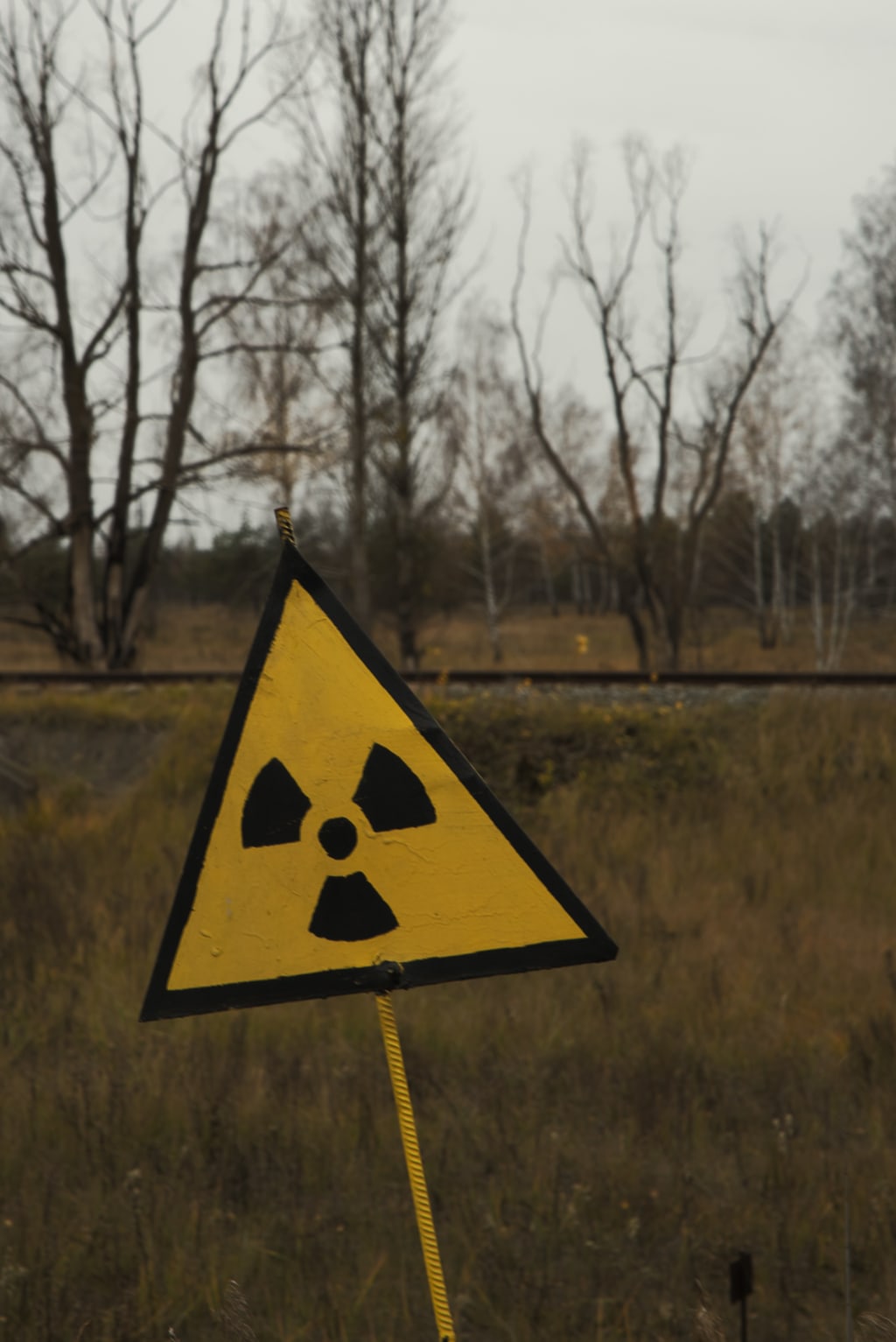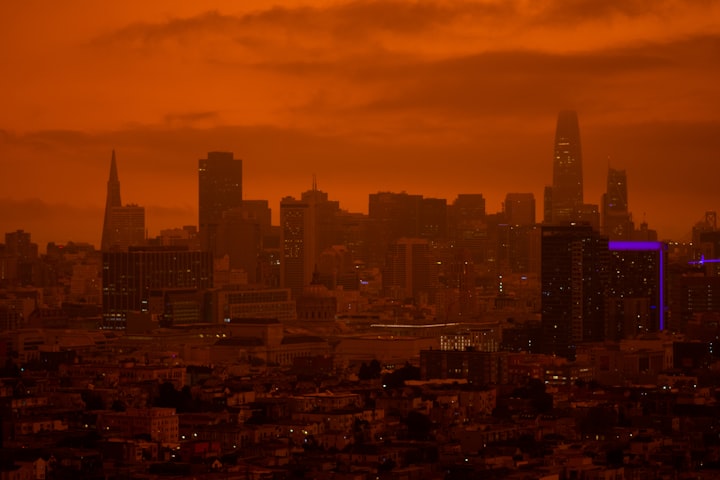There's a Little Chernobyl in Us All
A Soviet Problem? Don't Be So Smug

It was a beautiful sunny day today. But I found myself inside, watching TV.
Ordinarily, I wouldn't, but I'd been dying to see the new HBO Miniseries Chernobyl, and I knew it wasn't anything the rest of my family would be interested in. I, on the other hand, with a near-lifelong obsession with all things nuclear, could not wait.
I've read a lot of books and watched a lot of documentaries on the accident at the Vladimir I Lenin Power Plant on April 26, 1986, and the aftermath. To this day, it remains by far the worst nuclear accident in human history.
If you have the stomach for it, I'd recommend Chernobyl as highly as I'd recommend any piece of entertainment. It is exhaustively researched, brilliantly written, excellently acted, and the visual effects are spellbinding. As someone who knows full well what awaits the hapless reactor technicians sent to their deaths by clueless managers, or the firefighters walking right up to a cracked-open reactor, the feeling of horror is palpable.
In Chernobyl, the deceit, secrecy, and bootlicking at the heart of the Soviet system are on full display right from the start. Managers bully employees who tell them things they don't want to hear. Party bosses delay evacuating civilians to conceal the accident from the outside world. Men are sent into deadly radiation because the only working Geiger counter is locked in a supervisor's safe.
While it's easy, and no doubt smugly satisfying to conclude, as many have, that "That's their system, and that's why we won the Cold War," in my opinion, this misses the opportunity for us to learn something from the ineptitude and arrogance that led to so much death and pollution. Chernobyl is not merely entertaining; it is a timely warning for us all.
The Soviet system was only an extreme manifestation of the natural tendencies of human beings in large groups. The 1986 accident laid these tendencies bare for the whole world to see. But Chernobyl is far from the only time such a catastrophe has laid bare the failings of a governing system or large bureaucracy.
The Soviet Union barely survived a previous encounter with the consequences of its centralized, fear-based system. In 1941, Hitler's armies came within mere miles of Moscow, thanks in large part to Stalin's paranoia having eliminated almost all the Red Army's finest officers.
NASA's wishful-thinking, big-promise groupthink was laid bare in the aftermath of the Challenger explosion; and in 2002, it was seen to have scarcely improved when Columbia burned up on re-entry.
Having lost four officers to a maniac with a high-powered rifle in 2005, the RCMP was told to put its house in order, and issue its officers with the semi-automatic rifles and body armour required by the threat. But they dallied, worried about money and public image, and when three more officers died in a completely avoidable tragedy in Moncton, NB in 2013, the RCMP became the first police force in Canadian history to be convicted of Labour Code violations.
Two Boeing 737 Max aircraft recently crashed, with the loss of all aboard. It turns out that the venerable plane-maker sold its clients an aircraft with an auto-pilot feature that not only did not work properly, but that the simulators were not programmed for, and the pilots were not even told about.
Here's the thing about all these failures: They were preventable. I know for a fact that, in NASA, the RCMP, and even the Soviet system that there were people arguing for change before the disaster happened. But they were inevitably sidelined, ridiculed, ignored, or even executed, in the Soviet Union of Stalin's time. The Boeing situation is still very fresh, but I can guarantee there were probably a few people saying "Hold on a second" who were not listened to.
Big systems don't like small people asking tough questions. It doesn't matter which ideology you are talking about. They just don't. And this is unlikely to change any time soon. Because human technology may be light years beyond what we had in 5000 BC, but our minds are still pretty much version 1.0.
I've seen all of this at ground level, in 17 years in the Canada Border Services Agency. As a shop steward and safety advocate, a trainer, a line officer, I experienced a bureaucracy with some interesting commonalities with the USSR's.
Things that hadn't happened yet, whether it was an active shooter or a reactor explosion, were widely considered to be impossible, to the extent that even prior occurrences of the supposedly unthinkable were wished out of existence. Bureaucratic priorities and image always took precedence over lives and limbs. Those who communicated good news were considered more valuable than those who bore the bad. Constructive criticism was seen as disloyalty. Things that needed fixing couldn't be fixed until somebody more important decreed that they must, usually in response to public embarrassment. The bad news was ignored, and it's bearers harassed.
Body armour for officers was impossible; until the union embarrassed management by begging secondhand vests off US cops in full view of the TV cameras. Non-lethal weapons and criminal arrest powers were not needed; until people we could've arrested got away and killed people, and Parliament had to act. We didn't need guns until walkouts by officers during an election campaign got us just exactly that. Criminal warrant returns on the primary line? What a ridiculous concept, until a rapist escaped because we didn't know he was wanted. That which could not be fixed? C'est miraculous!
See a pattern here? It's a Soviet pattern. That reactor is good enough until it fails publicly and humiliatingly. Hospitals don't need iodine pills until they're overrun by radiation victims. Firefighters don't need protective equipment and dosimeters until they drop dead like flies.
It's a pattern that repeats so frequently, and so depressingly, one wonders if there is any hope for us. After all, aeroplanes carry more people than ever before. If we're not making them properly, what chance do their passengers and crews have? We need to phase out fossil fuels, so more nuclear plants aren't an "if," they're a "when." But how do we make sure they won't be the next Chernobyl if we don't fix our decision-making?
Is the situation hopeless? No. It need not be if we learn from the many examples we already have of flawed organizational thinking and decision making. It's encouraging to hear that West Point cadets are taught about the My Lai Massacre, and the value of constructive dissent. Aerospace engineers learn about Challenger, and the flawed decision to launch it, despite so many warnings from people who smelled disaster.
We can learn if we assess disasters of the past honestly. So many, even those with a natural component, have human factors which either bring them about or exacerbate their effects. We like to designate a villain, but this is rarely constructive. We like to indict a system we have come to have contempt for, like Communism, but fail to see the reflection in our own bureaucracies.
What are the ingredients for changing our flawed organizational brains?
Honest reflection on past failings, our own, and others'. Thinking about possibilities instead of probabilities. Allowing subordinates to speak up and changing the focus from image to reality. Encouraging the admission of fallibility. Opening our eyes to ugly realities. Abandoning the idea that "It can't happen here." These are the ways we can prevent the Chernobyls of the future, or at least lessen their effects.
Because we do, eventually change. Miners get helmets. Cars get seatbelts and self-sealing gas tanks. Toxic chemicals get banned. We do learn. But the question is, at what cost?
Society may be able to afford thousands of road deaths a year, but it cannot afford too many Chernobyls. And that's the big problem. Because the flaws of those plant managers and Communist apparatchiks are our flaws too. I've seen them close up, in people without Russian accents and bad suits.
Because there's a little Chernobyl in us all. And we need to learn how to manage it a hell of a lot better.
About the Creator
Grant Patterson
Grant is a retired law enforcement officer and native of Vancouver, BC. He has also lived in Brazil. He has written fifteen books.






Comments
There are no comments for this story
Be the first to respond and start the conversation.